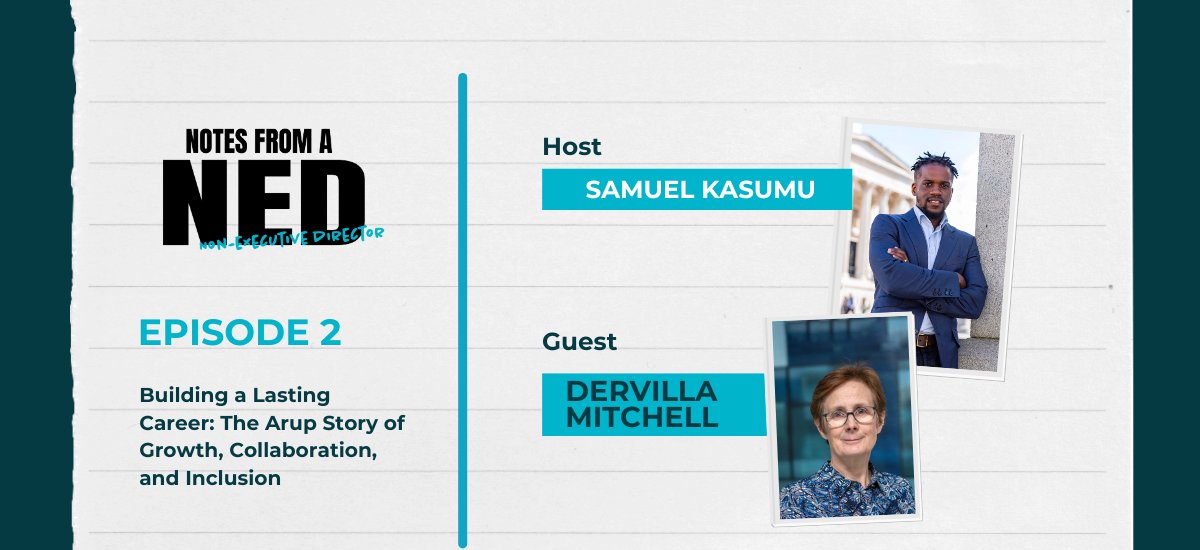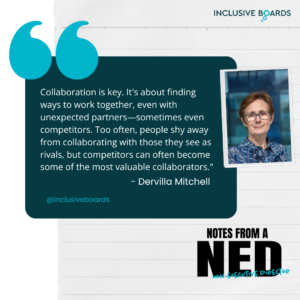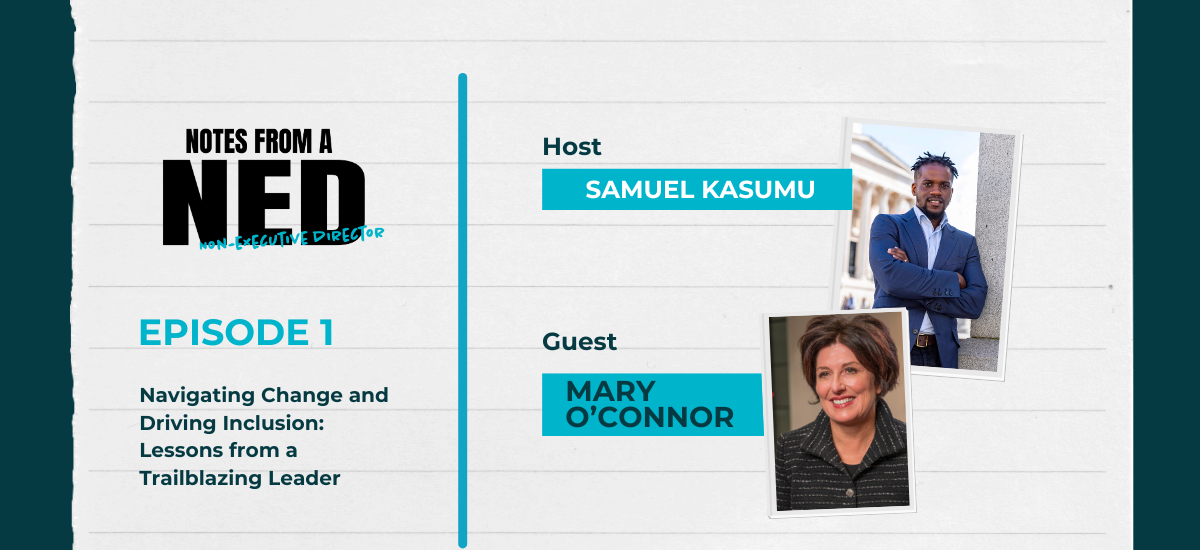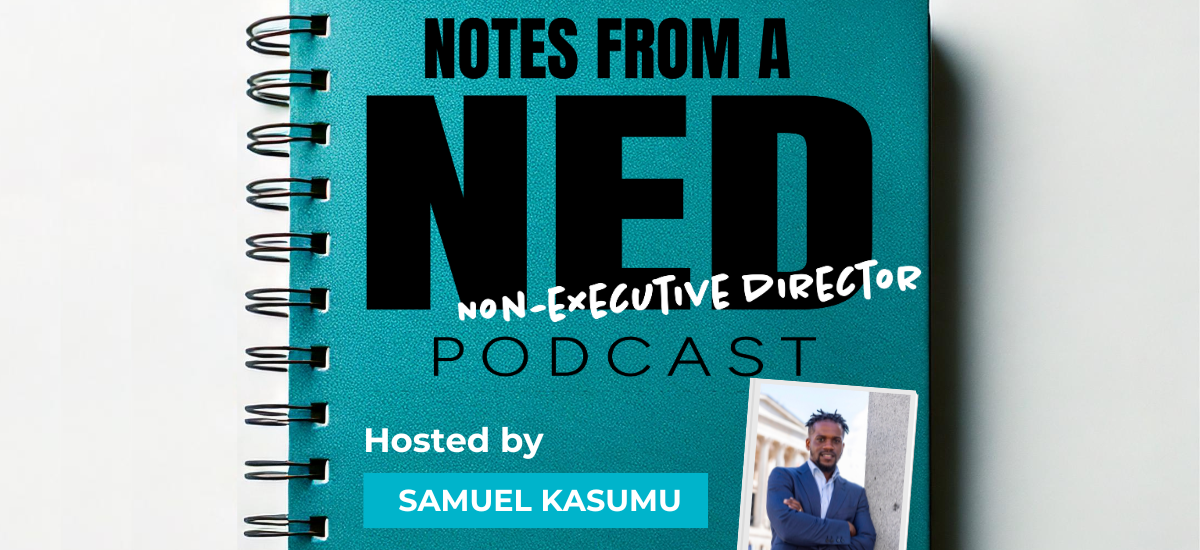In the latest episode of the “Notes from a Non-Executive” podcast, host Samuel Kasumu sits down with Dervilla Mitchell, a senior director at the renowned Arup Group, to discuss her remarkable career journey and the strategies she has employed to navigate the challenges inherent in the engineering industry.
Listen and subscribe here: https://podfollow.com/1773055569
Arup Group is a global design and engineering consultancy with a unique ownership structure. Founded in 1946 by Sir Ove Arup, the organization is owned in trust for the benefit of its employees, a model that Dervilla believes has provided the company with a degree of independence and freedom to focus on delivering exceptional work for its clients.
Dervilla highlights how this ownership structure has shaped Arup’s approach, particularly during the COVID-19 pandemic, when the company prioritized the safety and well-being of its employees over immediate commercial concerns. This commitment to its people has been a key factor in Dervilla’s long tenure at the organization, which spans over 40 years.
Navigating Hurdles and Embracing Collaboration
Dervilla acknowledges that obstacles are inevitable in the engineering industry, often stemming from a lack of resources, poor planning, or breakdowns in communication between the various stakeholders involved in a project.
However, she emphasizes the importance of proactively addressing these challenges through collaborative efforts. Using the example of the roof construction for Heathrow’s Terminal 5, Dervilla demonstrates how early engagement between designers, contractors, and the client, as well as the decision to pre-build a portion of the roof off-site, helped to mitigate risks and ensure a smooth execution of the project.
Developing Confidence and Seeking Diverse Experiences
Dervilla’s own journey has been marked by a transformation from a self-described “unconfident and tentative young person” to a confident leader.
She attributes this growth to the supportive environment at Arup, as well as her willingness to step outside her comfort zone and seek out diverse experiences, both within the organization and in the broader engineering community. Serving on committees and boards outside of Arup, such as the Royal Academy of Engineering, has provided Dervilla with valuable opportunities to learn from others and develop a more well-rounded perspective. This approach, she believes, is crucial for engineers and professionals in any industry to expand their horizons and become more effective leaders.
Fostering Diversity and Inclusion
Dervilla acknowledges the challenges the engineering sector has faced in attracting and retaining a diverse workforce, particularly when it comes to women.
She emphasizes the importance of taking a systematic, data-driven approach to addressing these issues, rather than relying solely on emotional appeals. Arup’s initiatives, such as setting diversity targets for graduate hires and promotions, as well as closely monitoring pay gaps, demonstrate the company’s commitment to creating a more inclusive environment. Dervilla’s insights highlight the need for organizations to go beyond individual efforts and implement holistic, long-term strategies to drive meaningful change.
Lessons for Aspiring Engineers and Leaders
Dervilla’s advice to young engineers is to focus on finding work that they genuinely enjoy, while also being willing to step outside their comfort zones and seek out new challenges. She emphasizes the importance of developing confidence, learning from both successes and failures, and building a support network both within and outside of one’s organization. Dervilla’s own journey serves as a testament to the power of patience, perseverance, and a willingness to embrace change. Her insights offer valuable lessons for aspiring engineers and leaders in any industry, underscoring the importance of collaboration, continuous learning, and a steadfast commitment to excellence.
Listen and subscribe here: https://podfollow.com/1773055569




